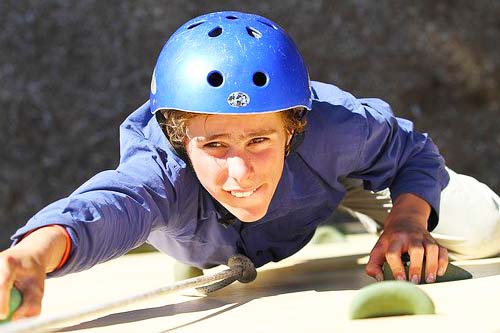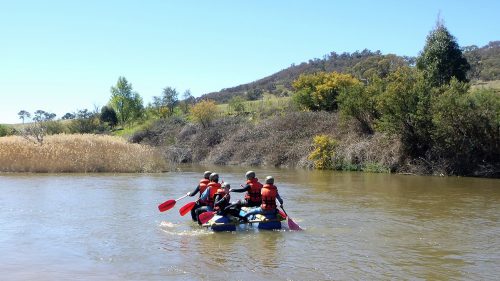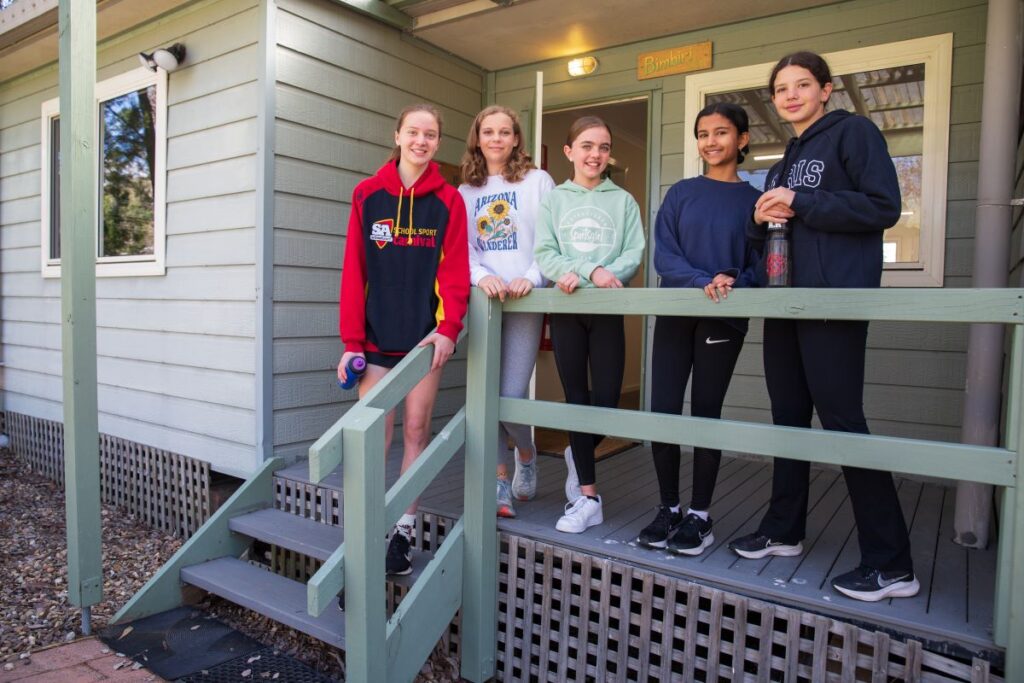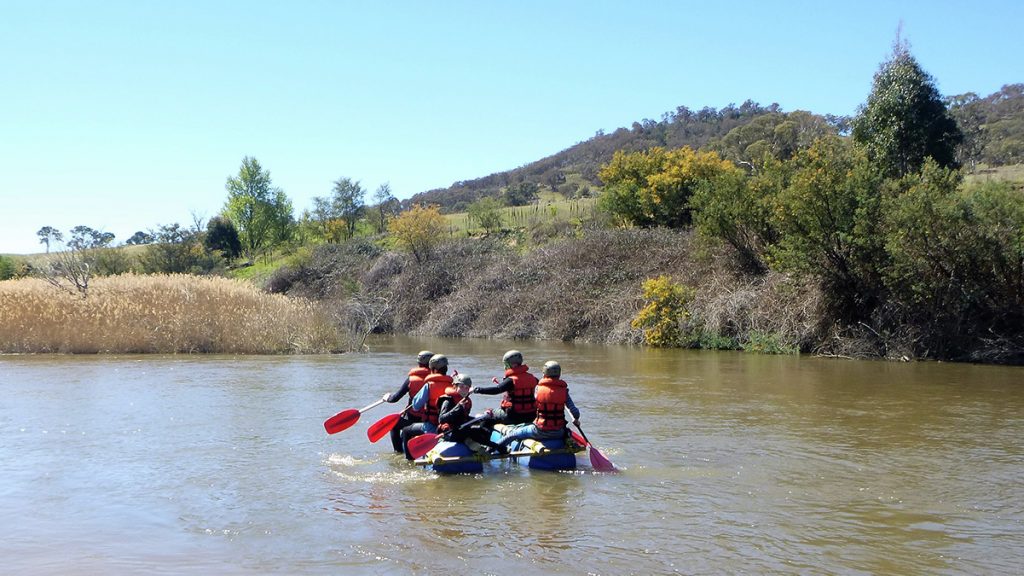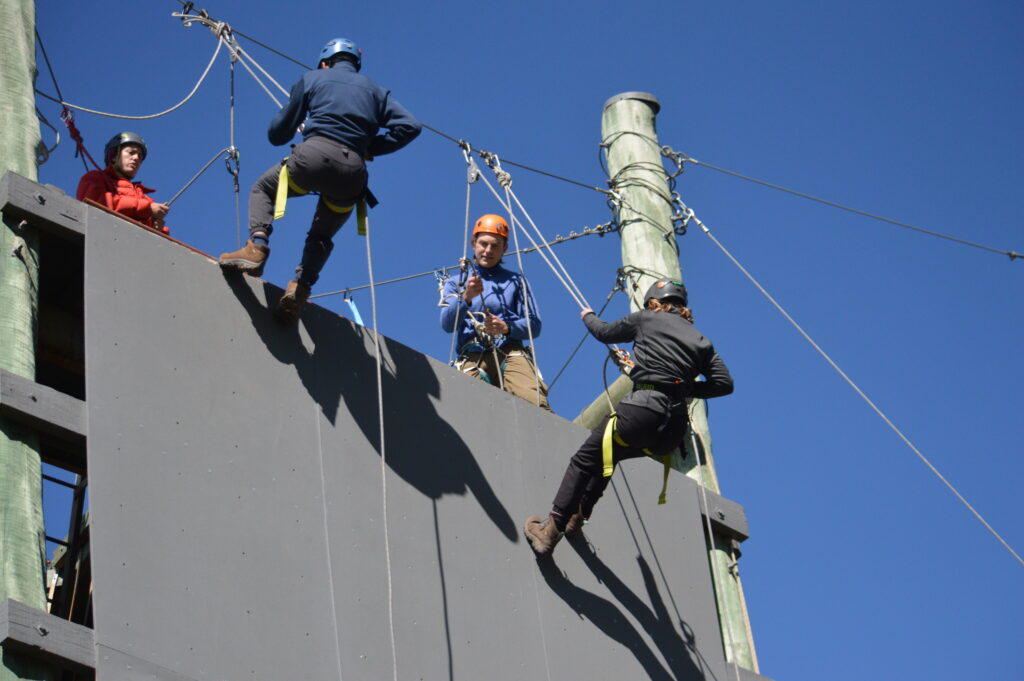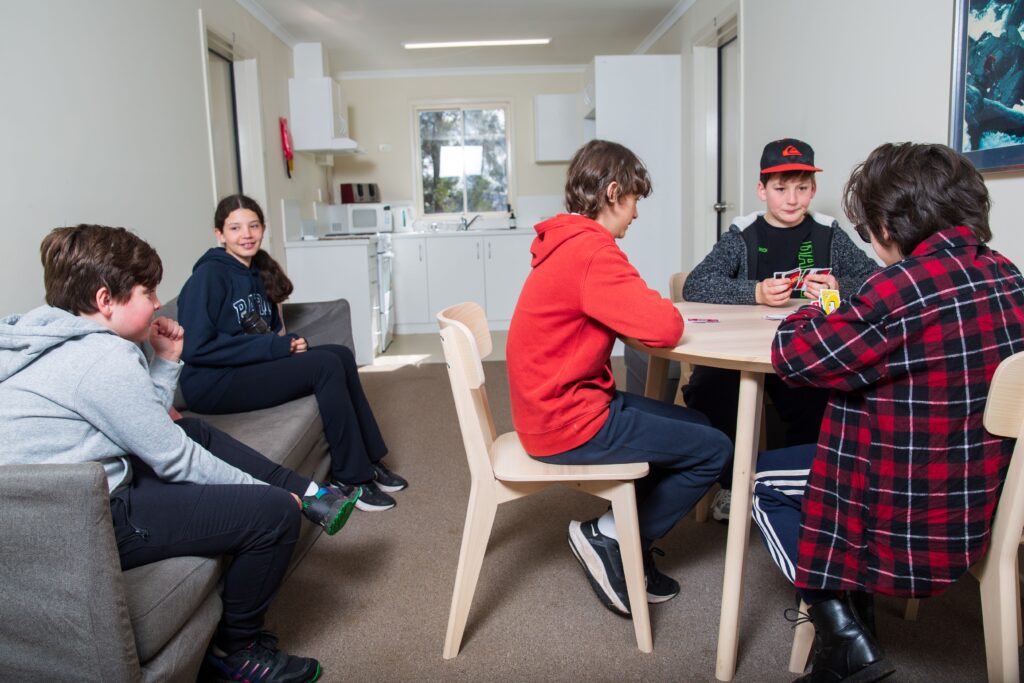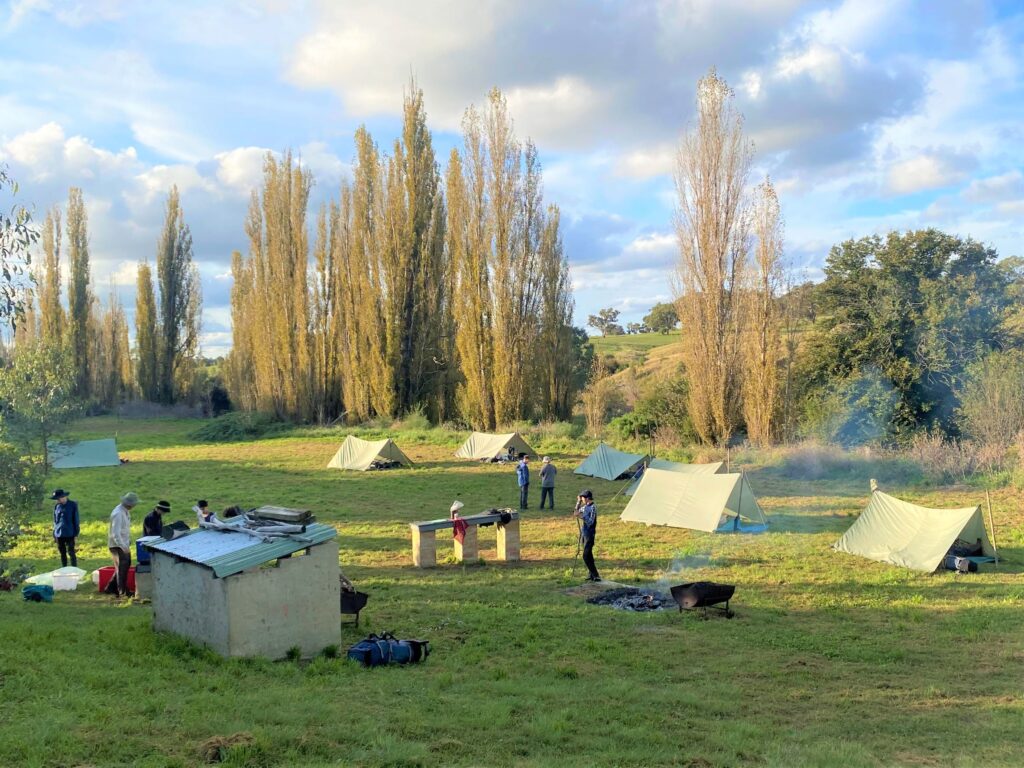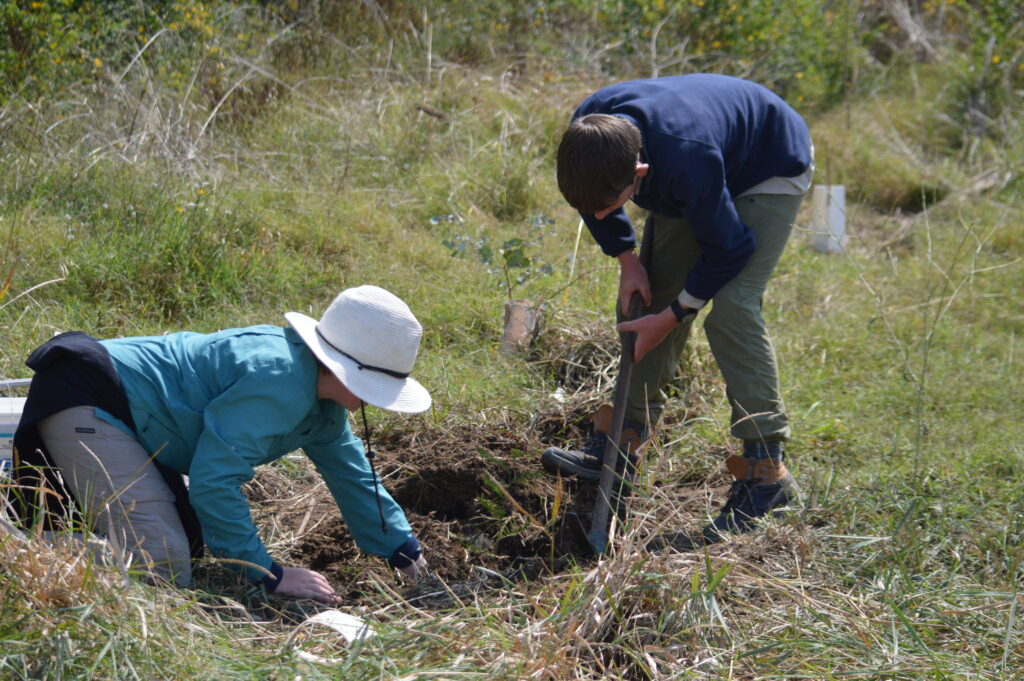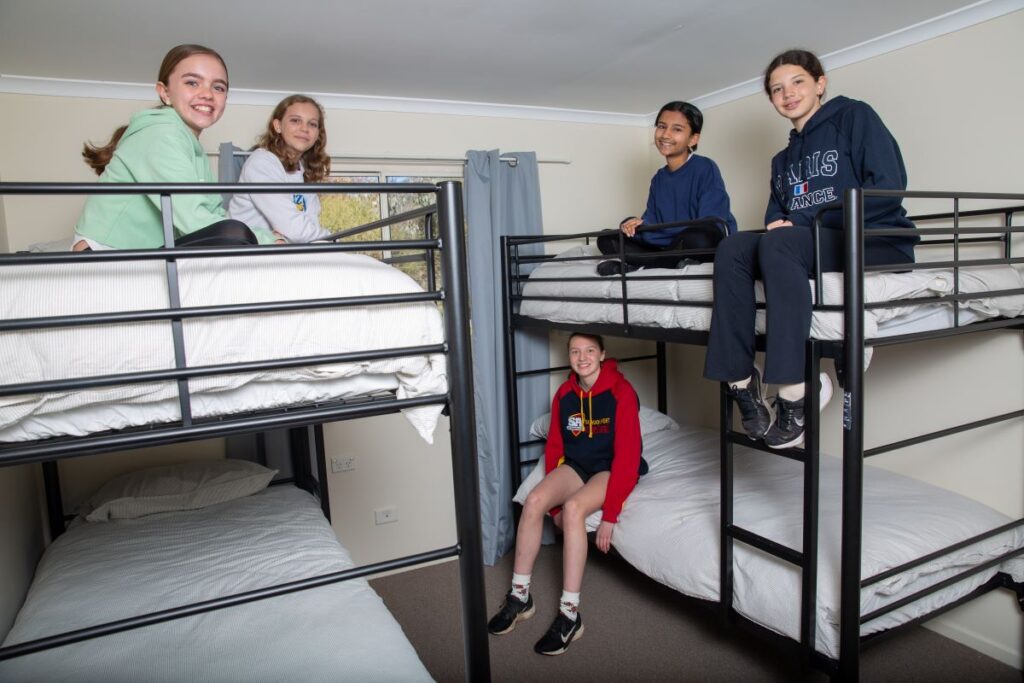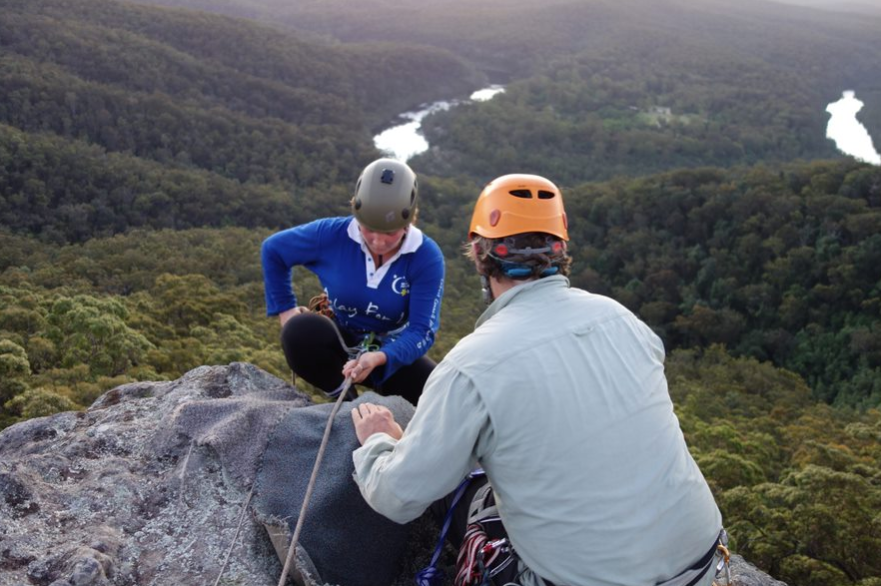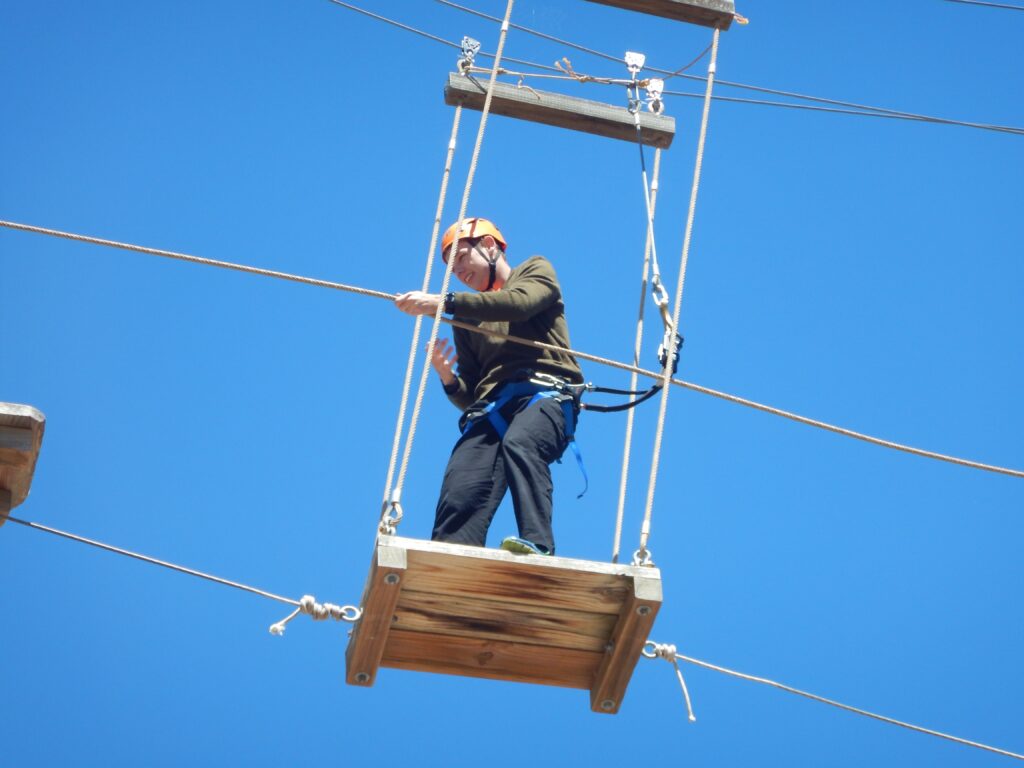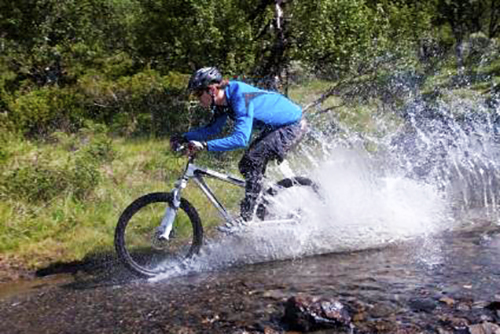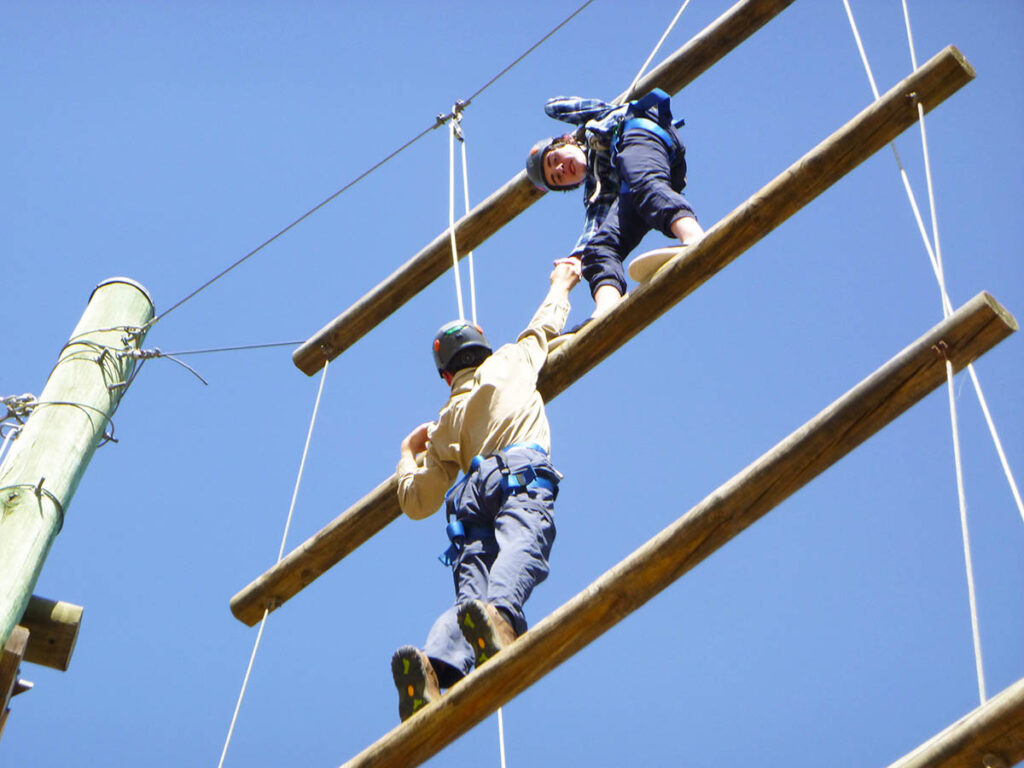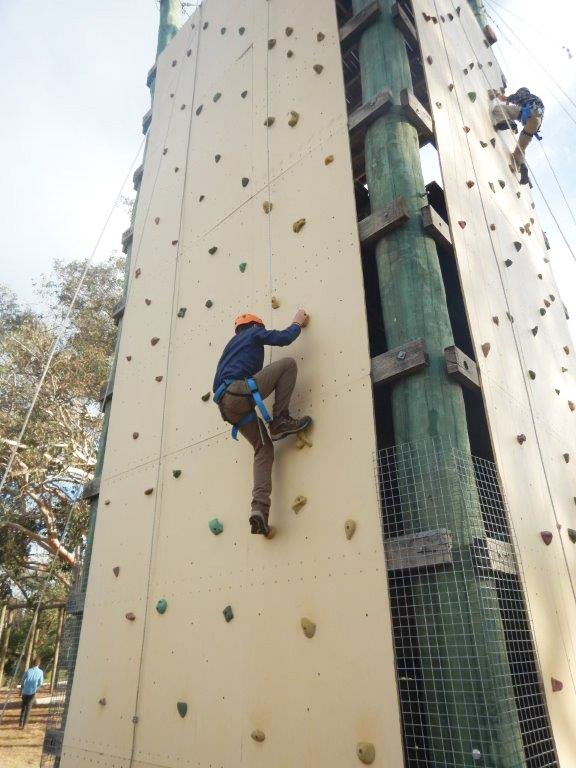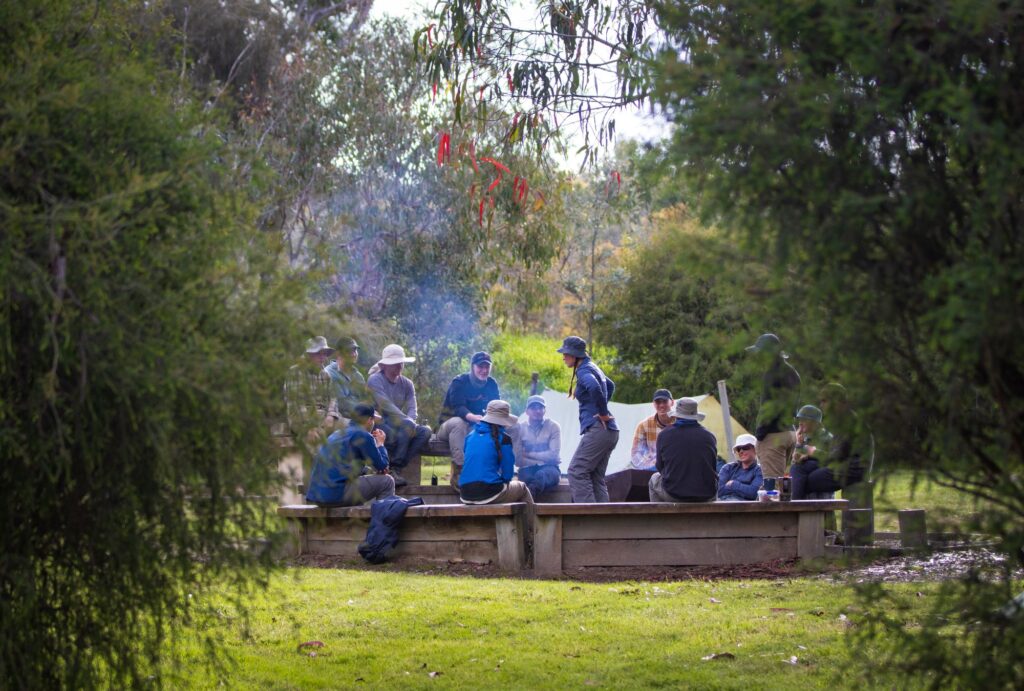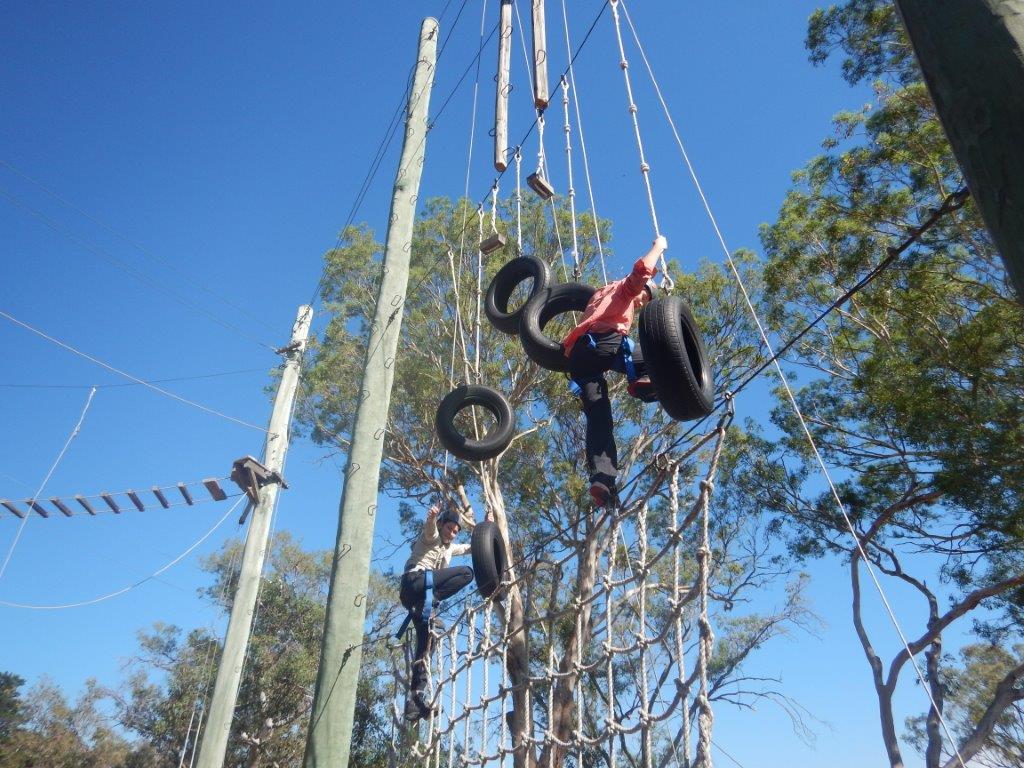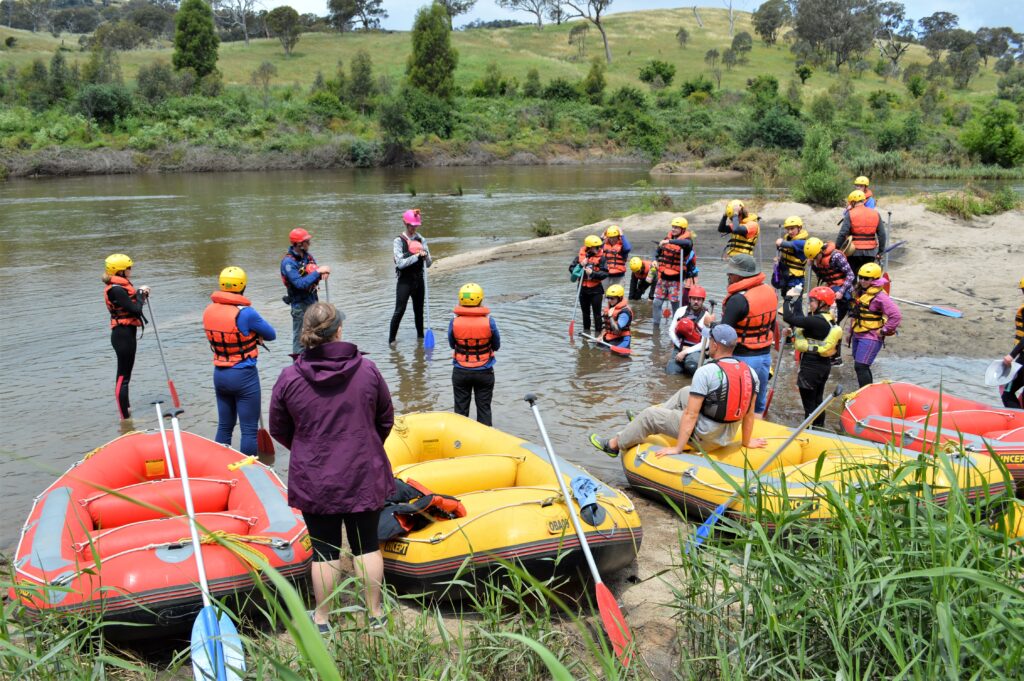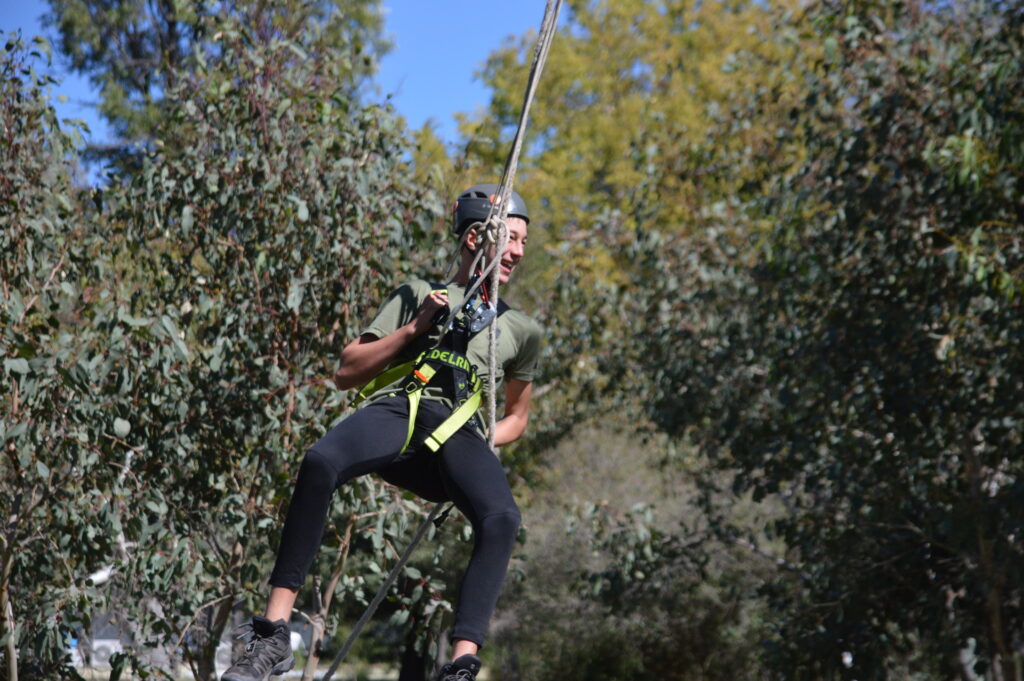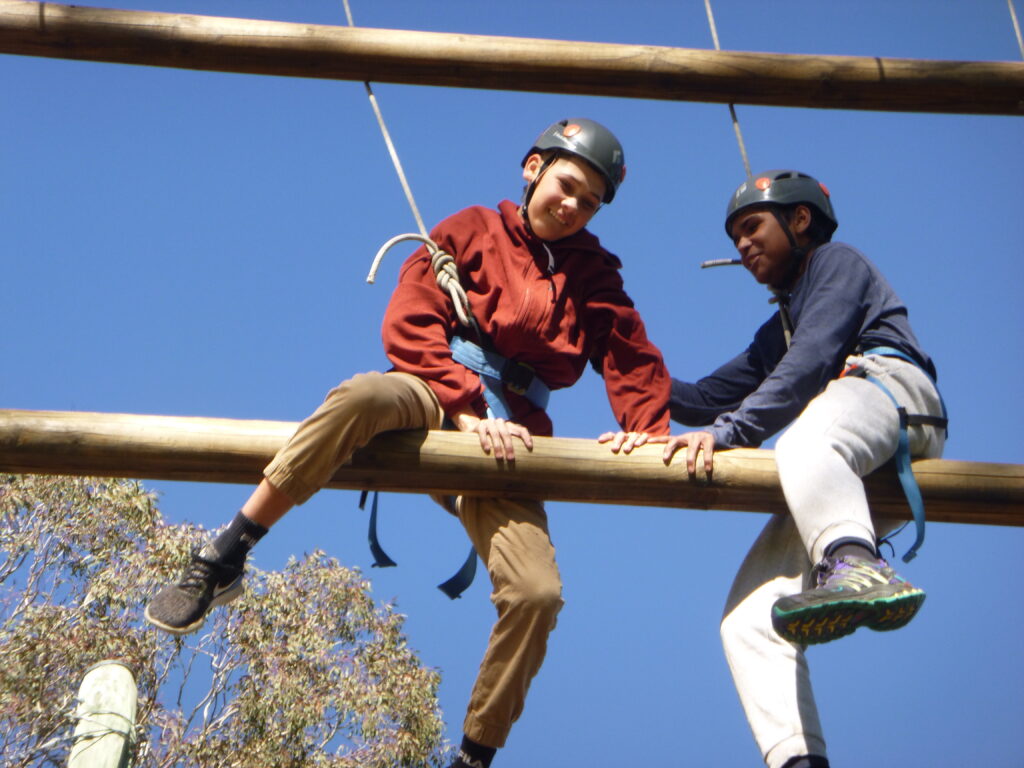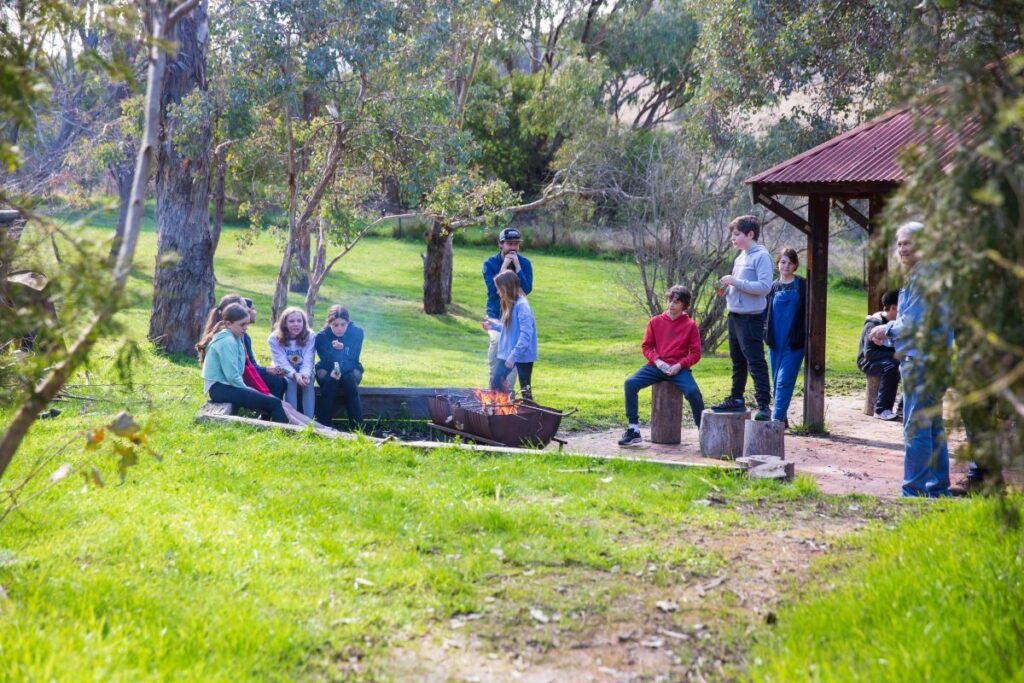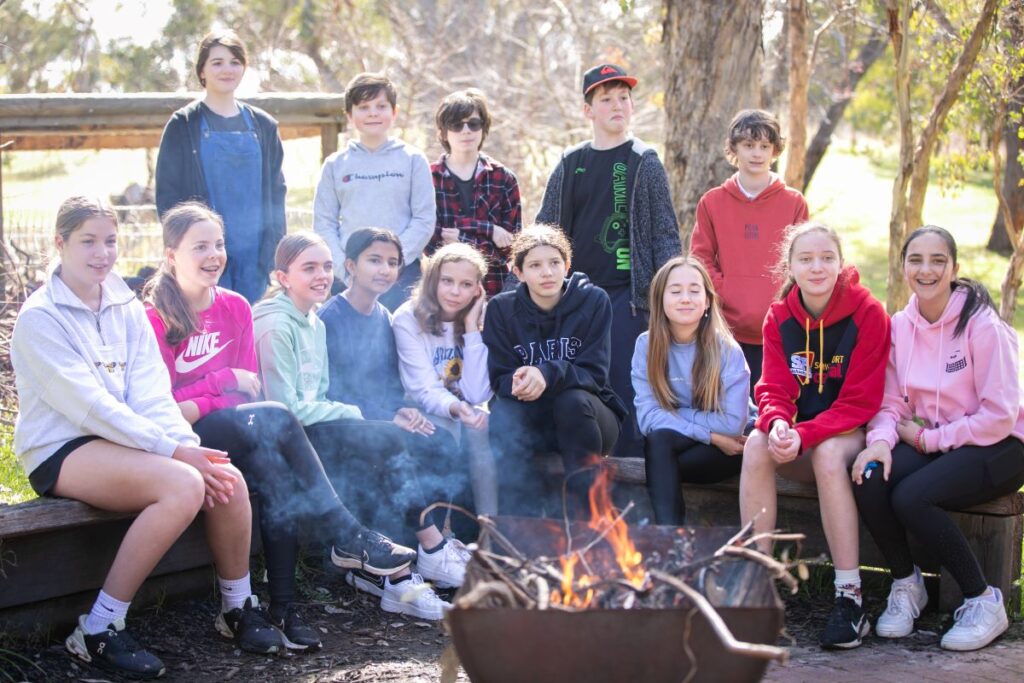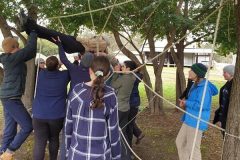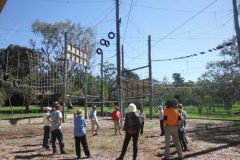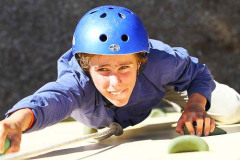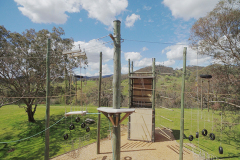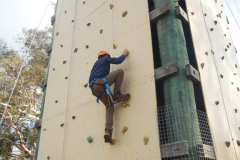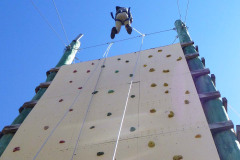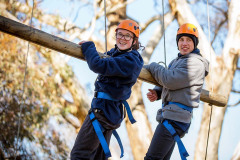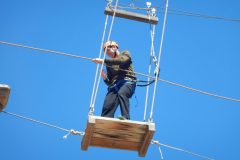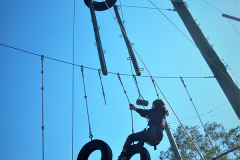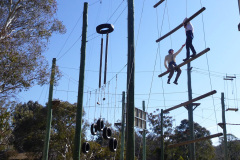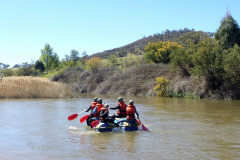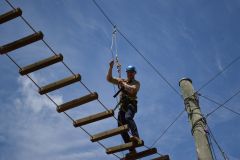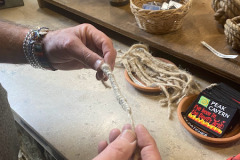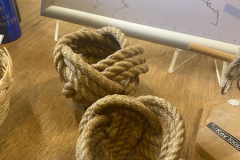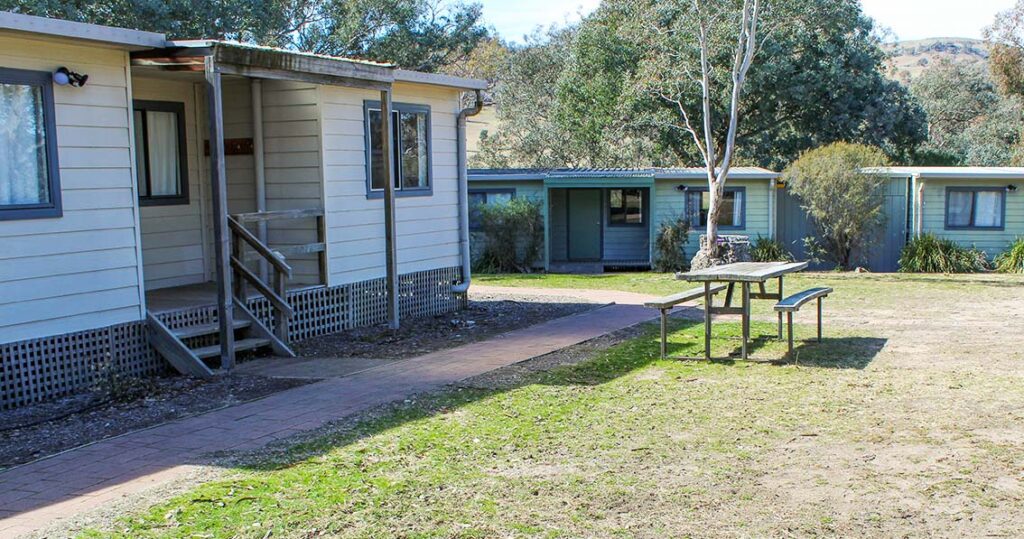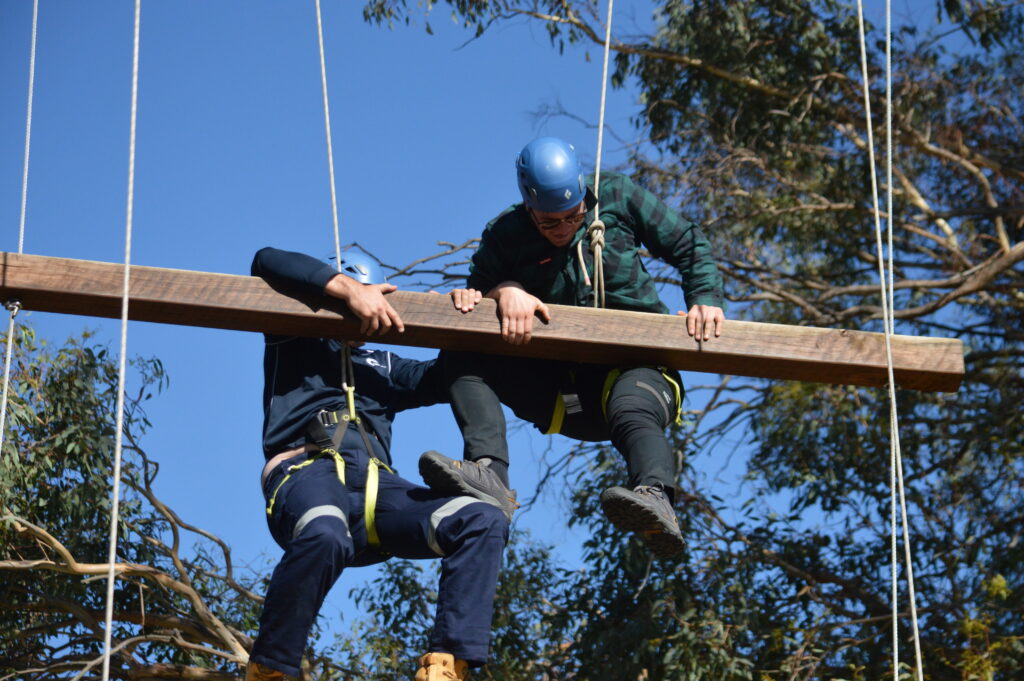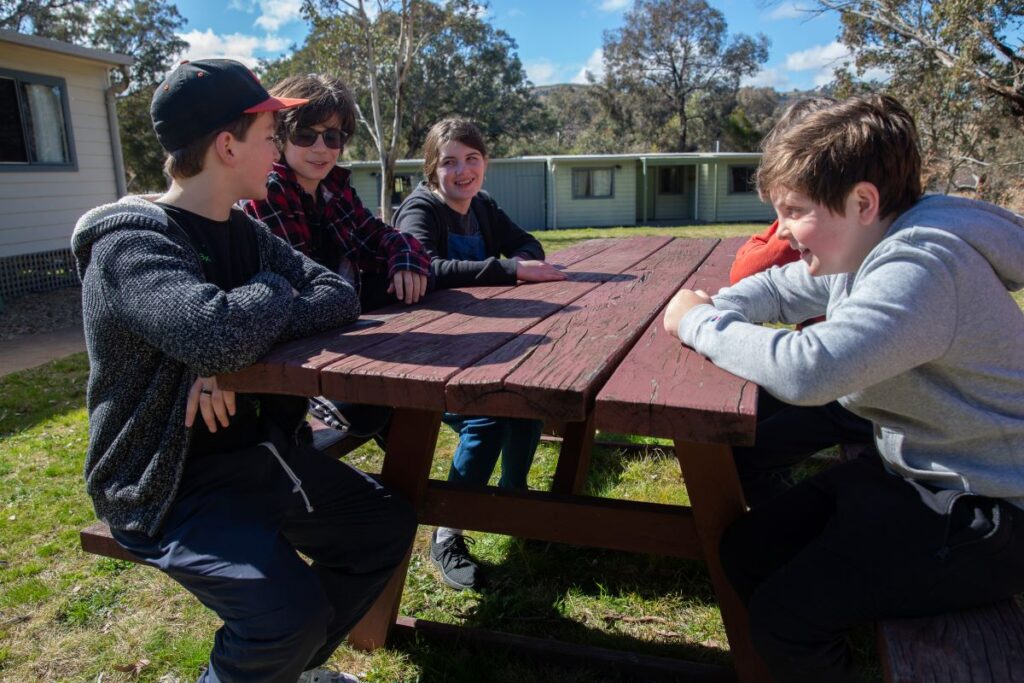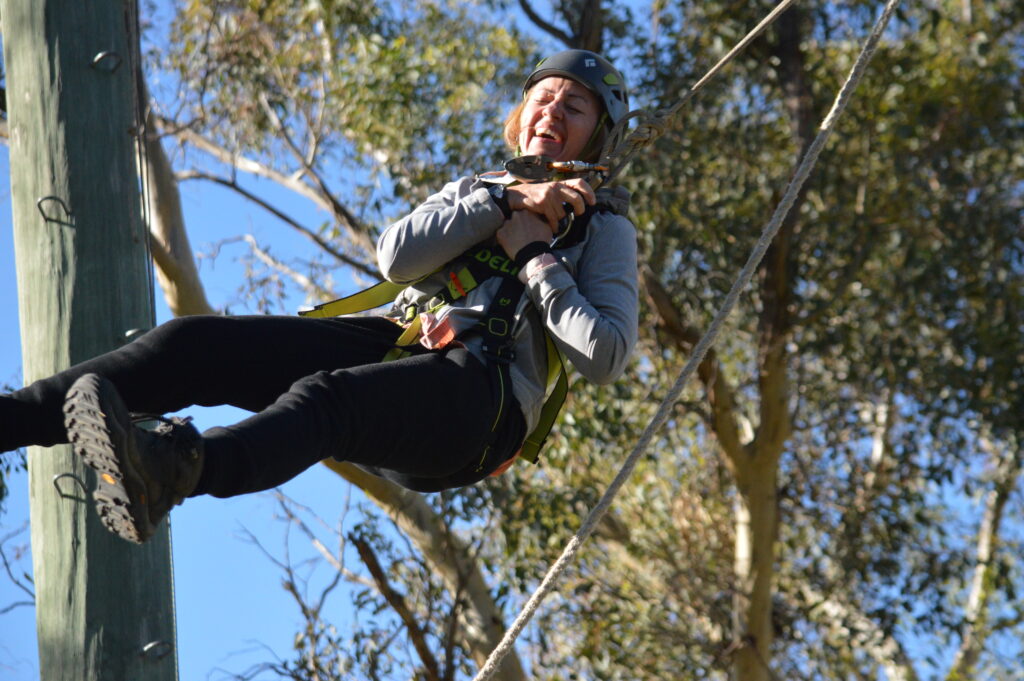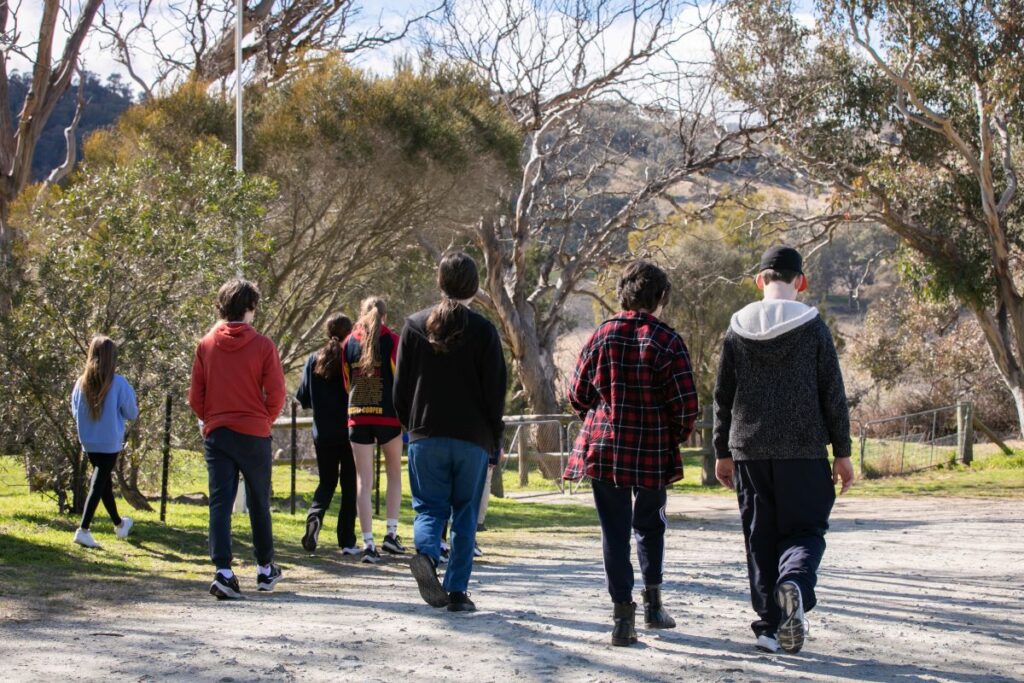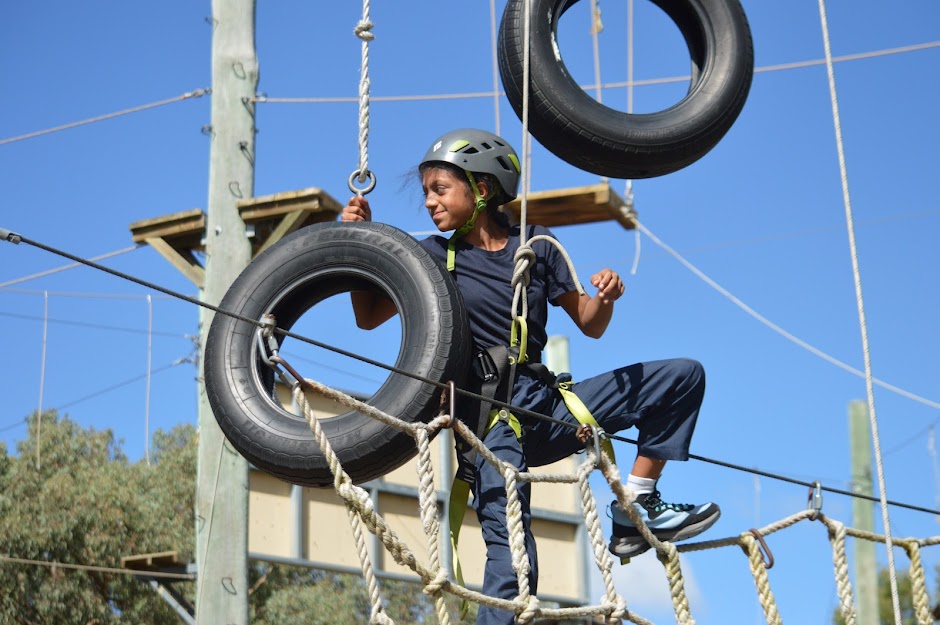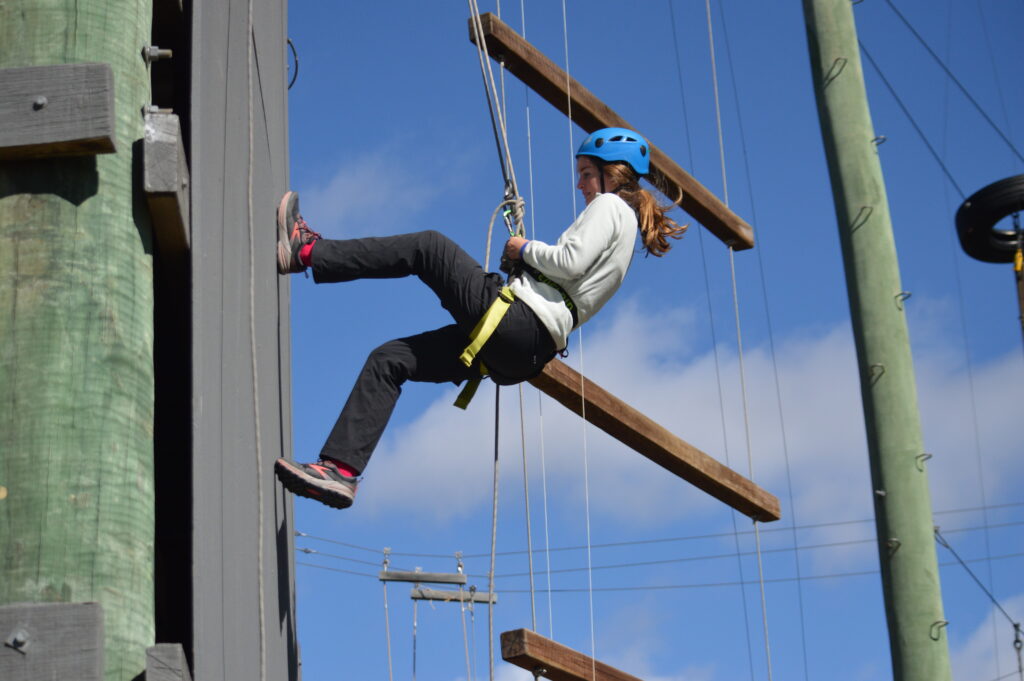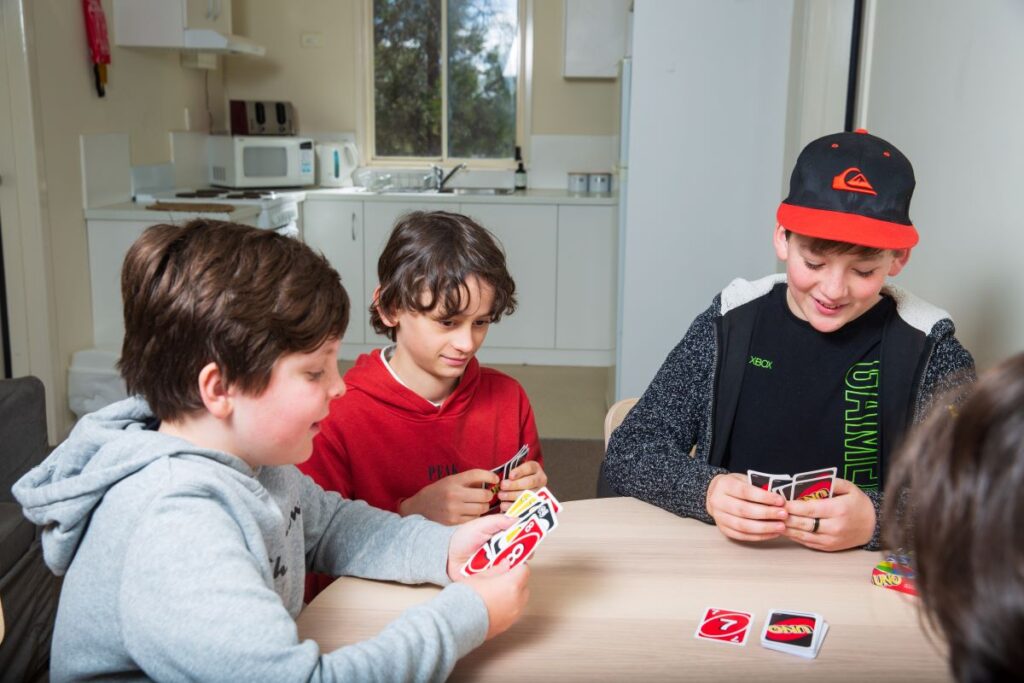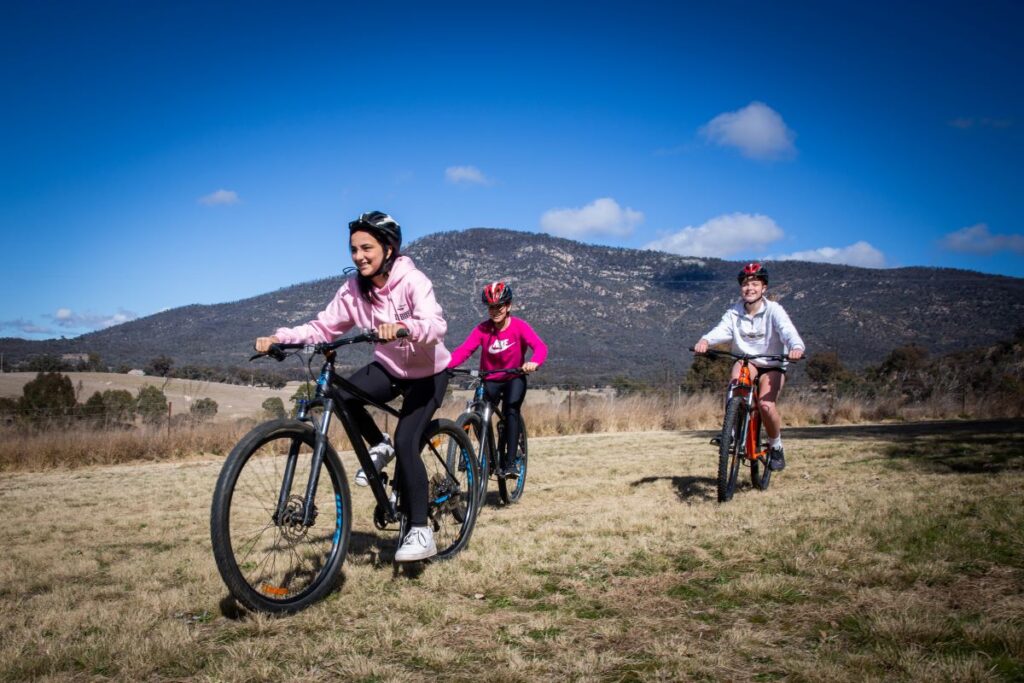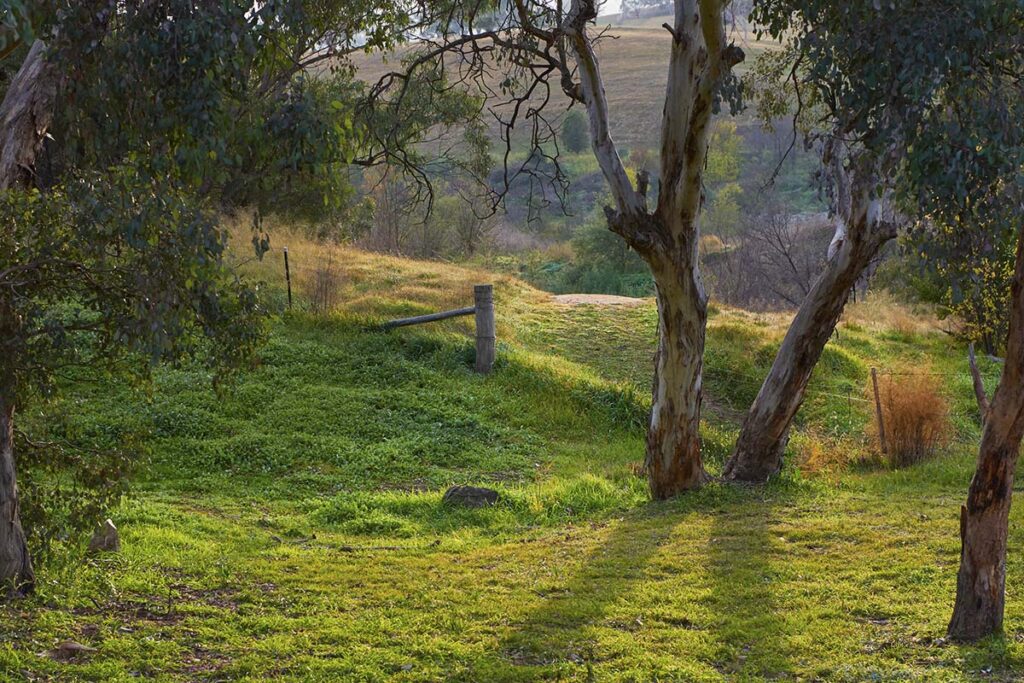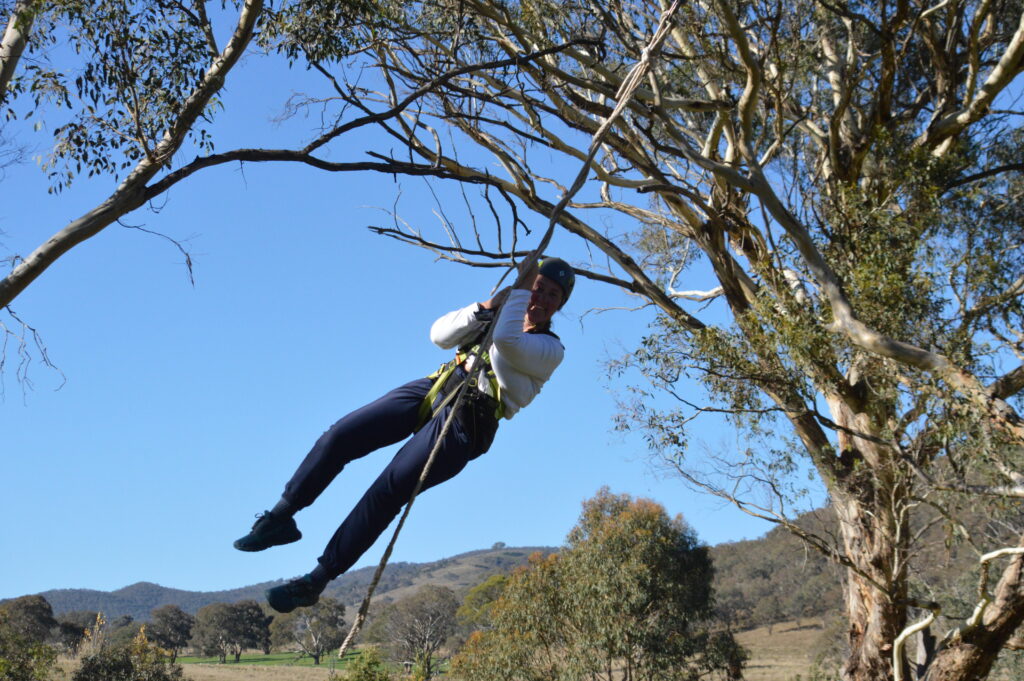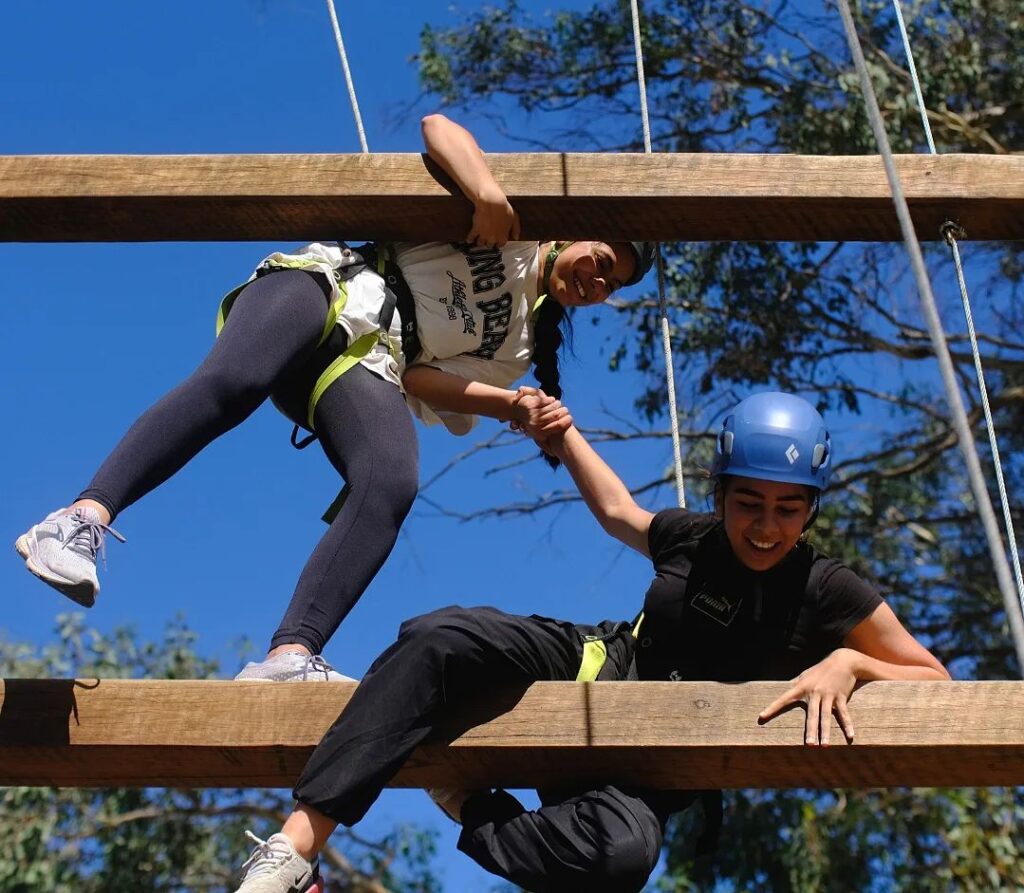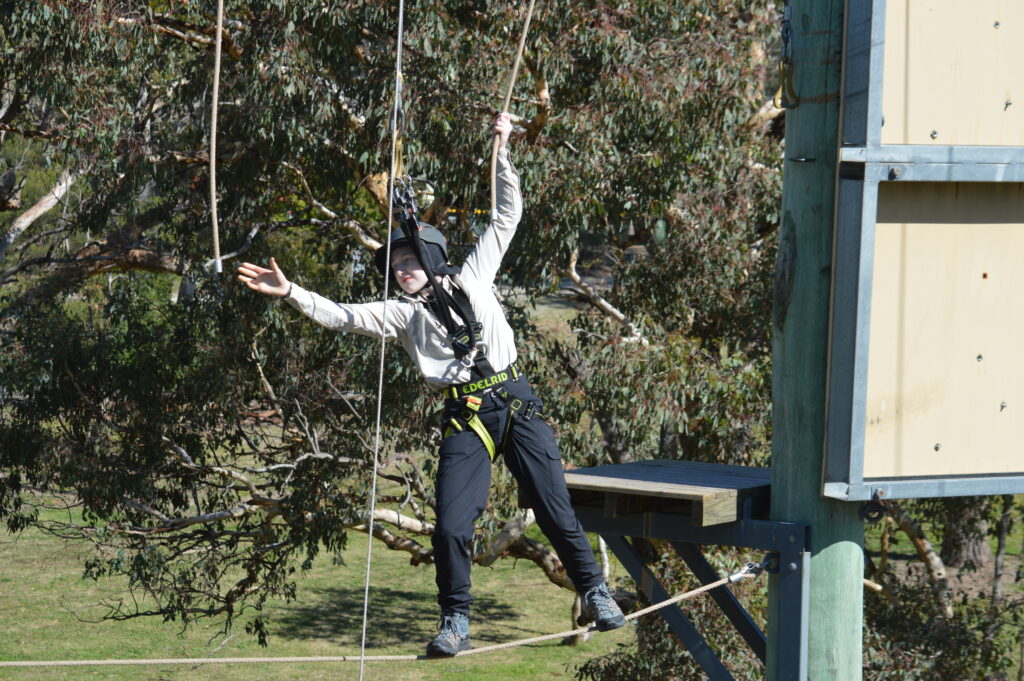Centre-Based School Camps
Stay at Outward Bound's Tharwa Campus just 30 minutes from Parliament House in Canberra, and enjoy a school camp where your students will become more independent, creative and confident in the natural world.
- Rope Making
- Like the Ancient Egyptians used papyrus, students can make a rope wristband to wear home.
- Butter Churning
- Turn cream into butter with good ol’ fashioned elbow grease.
- Cyanotypes
- Students make photograms with leaves they’ve collected from around campus.
- Nature Printing
- Using the “Tataki Zome” technique, students print plant material onto paper.
- Scone Baking
- using the butter they churned earlier, students can bake their own scones
- Pizza Cooking
- make the dough, roll it out, coat it with your favourite ingredients and cook it on the pizza oven for lunch. Yum!
- Felting Soap
- Following traditional, ancient methods, felt fibre is rubbed until it forms one continuous cloth around a bar of soap.
Outward Bound can sleep 142 people in beds on centre-based school camps with camping for another 100. Well heated and with endless hot water, our cabin accommodation allows you to have a hot shower and a warm, comfortable bed at the end of each day.
-
- Guests are invited to bring their own doonas or sleeping bags.
- Sleeping bags can be provided for an additional fee.
- Single room supplement: Rooms are configured with either 4 or 6 beds per room. Guests can have their own room for an additional 50% of standard rate, where available.
- Conference / recreational hall for 60 people. Ideal for movie nights.
- See Canberra Accommodation for pricing.
-
Cabins
- 6 self-contained cabins sleep up to 122 people in total.
- Each cabin has a communal living area with kitchenette and four bedrooms sleeping between 4 and 6 people per bedroom.
- A maximum of 22 people can sleep in each cabin.
- Each bedroom has an en-suite shower and toilet.
Bunkhouses
- 3 bunkhouses sleeping 20 people in total.
- Two bunkhouses have 8 beds each, the other has 4 beds. All have an ensuite with shower and a large table and chairs in a common area to plan your Canberra excursion.
- Not as luxurious as the cabins, but much more comfortable than camping.
- Perfect for Bus Drivers
Camping
- Campsites for over 100 people across the property, ranging from large open fields to secluded, private campsites.
- Access to toilets and hot showers.
Our in-house catering team pride themselves on delivering fresh, healthy meals to support your students and teachers on their adventures and education programs.
Evening meals are prepared and served from our fully equipped commercial kitchen and eaten in the 60 person dining hall, with additional outside dining for 30. Meals are generously portioned to suit full activity days on campus and we cater to a range of dietary needs.
Morning/afternoon tea and lunch can be eaten in the dining hall or on your journey, wherever that may be on the 22 acres of beautiful Ngunnawal country, and neighboring Namadgi National Park that we call home.
Indicative Menu:
- Dinner is a rotation of chicken burgers, burritos, cottage pie, spaghetti bolognaise, sausages and mash and chicken stir-fry. (Meal rotation subject to change.)
- Lunch is selection of meats, salads, and wraps/bread. Can be laid out at breakfast for guests to make lunches if they’re going to be offsite.
- Breakfast is cereal with a selection of milks, toast with spreads and juice.
- Morning and afternoon tea is fruit, muffins, and biscuits. Can also be packed for guests who will be offsite.
 |
Outward Bound learning outcomes are built from three competency clusters; Self, Others and The World Around Us. They intersect with the four core pillars of OBA programs; grit, wellness, purpose and agency, and compassion in and educational framework that delivers visible and measurable outcomes for your students. Please ask us about co-designing a program to deliver the learning outcomes your school hopes to see. |
The recently released Outward Bound International Global Impact Report 2023 revealed the centralizing theme of CONNECTIONS across all regions and 5 CORE OUTCOMES of Outward Bound programs consistent across the worldwide network of Schools. Connections to:
- Self
- Resilience
- Confidence
- Others
- Compassion
- Social Competence
- The Natural World
- Environmental Responsibility
Tharwa Campus has a number of permanent structures to develop students’ confidence and self-belief and introduce them to roping, harnesses and safety belay systems:
- high ropes course with numerous elements 10 meters above the ground, better suited to secondary students with a degree of height
- vertical playpen is a combination of suspended cargo nets, timber pole and old car tyres from the ground to a height of 10m. Suitable for younger ages.
- climb and abseil tower, suitable for secondary students
- giant swing, suitable for younger ages
- bushcraft workshops, with rope, felt and soap-making for a tangible take-home from Outward Bound Tharwa Campus (for completion in 2023)
- orienteering course, giant ladder, low-ropes, and much more
A small sample of the vast number of fun activities and initiatives, both physical and intellectual, your Stage 2 students can enjoy. As with all Outward Bound activities, there are countless ways to facilitate different outcomes, and increase or decrease level of challenge, depending on the group’s needs at the time.
| Activity | What do students do? | What do students learn? |
|---|---|---|
| Gunyah (hut) Building | Build a hut with sticks and bark with your group. |
|
| Electric Maze | The team has come to a maze which has been ‘electrified’ and there is only one safe way to cross. Each person in turn must try to get through the maze without stepping on a square that has been ‘electrified’. |
|
| Scavenger Hunt | Go on a scavenger hunt around Tharwa Campus and the Murrumbidgee River Corridor. To discover where they need to go, a word search is supplied with clues to locations. |
|
| Egg Drop | Using natural materials sourced from Campus, their own gear or other crafting materials from earlier initiatives, the goal is to create a structure that will keep an egg safe when it is dropped from height. |
|
Sample Learning Outcomes for Years 3 – 6, related to Educational Framework:

Parts of the Australian Curriculum, particularly relating to Geogrpahy, Science and Health and Physical Education can be taught on Outward Bound programs. Several examples are:
Year 3
- Geography
- The similarities and differences in individuals’ and groups’ feelings and perceptions about places, and how they influence views about the protection of these places (ACHGK019)
- Science
- Earth’s surface changes over time as a result of natural processes and human activity (ACSSU075)
- Living things can be grouped on the basis of observable features and can be distinguished from non-living things (ACSSU044)
- Science involves making predictions and describing patterns and relationships (ACSHE050)
- Health and Physical Education
- Describe and apply strategies that can be used in situations that make them feel uncomfortable or unsafe (ACPPS035)
- Describe strategies to make the classroom and playground healthy, safe and active spaces (ACPPS040)
- Participate in outdoor games and activities to examine how participation promotes a connection between the community, natural and built environments and health and wellbeing (ACPPS041)
Year 4
- Geography
- The importance of environments to animals and people, and different views on how they can be protected (ACHGK022)
- The natural resources provided by the environment, and different views on how they could be used sustainably (ACHGK024)
- The sustainable management of waste from production and consumption (ACHGK025)
- The types of natural vegetation and the significance of vegetation to the environment and to people (ACHGK021)
- Science
- Earth’s surface changes over time as a result of natural processes and human activity (ACSSU075)
- Science knowledge helps people understand the effect of their actions (ACSHE062)
- Health and Physical Education
- Explore how success, challenge and failure strengthen identities (ACPPS033)
- Participate in outdoor games and activities to examine how participation promotes a connection between the community, natural and built environments and health and wellbeing (ACPPS041)
Outward Bound collaborates with you and the school to deliver the learning outcomes you want your students to achieve from their school camp. Outward Bound is not an ‘off the shelf’ product. We welcome conversation with you to engage in a genuine co-design process.
It’s cleverly disguised as fun, so your students will love it, but Outward Bound focuses on student growth and development, and how they implement this in their everyday lives.
This is one basic example of a 3-day Stage 2 program we run for a school.

A small sample of the vast number of fun activities and initiatives, both physical and intellectual, your Stage 2 students can enjoy. As with all Outward Bound activities, there are countless ways to facilitate different outcomes, and increase or decrease level of challenge, depending on the group’s needs at the time.
| Activity | What do students do? | What do students learn? |
|---|---|---|
| Fire Building | Take responsibility for building, lighting and maintaining an open fire for cooking. |
|
| Leaky Pipe | In teams, solve the problem of how to get the key out of the leaky pipe. |
|
| River Watch | Engage in a Citizen Science project testing water quality of the Murrumbidgee River. |
|
| Spider’s Web | Navigate their way through the web (vertical rope), from one side to the other, without waking the spider (touching the rope). |
|
Sample Learning Outcomes for Years 3 – 6, related to Educational Framework:

Parts of the Australian Curriculum, particularly relating to Geogrpahy, Science and Health and Physical Education can be taught on Outward Bound programs. Several examples are:
Year 5
- Geography
- The influence people have on human characteristics of places and the management of spaces within them (ACHGK029)
- The influence of people, including Aboriginal and Torres Strait Islander Peoples, on the environmental characteristics of Australian places (ACHGK027)
- The influence of the environment on the human characteristics of a place (ACHGK028)
- Science
- Living things have structural features and adaptations that help them to survive in their environment (ACSSU043)
- Science understandings, discoveries and inventions are used to solve problems that directly affect peoples’ lives (ACSHE083)
- Health and Physical Education
- Explore personal and cultural identities and how they change and adapt to different contexts and situations (ACPPS051)
- Plan and practice strategies to promote health, safety and wellbeing (ACPPS054)
- Examine the influence of emotional responses on behaviour and relationships (ACPPS056)
Year 6
- Geography
- The effects that people’s connections with, and proximity to, places throughout the world have on shaping their awareness and opinion of those places (ACHGK036)
- Science understandings, discoveries and inventions are used to solve problems that directly affect peoples’ lives (ACSHE100)
- Science
- Sudden geological changes and extreme weather events can affect Earth’s surface (ACSSU096)
- The growth and survival of living things are affected by the physical conditions of their environment (ACSSU094)
- Science understandings, discoveries and inventions are used to solve problems that directly affect peoples’ lives (ACSHE100)
- Health and Physical Education
- Examine the influence of emotional responses on behaviour and relationships (ACPPS056)
- Explore personal and cultural identities and how they change and adapt to different contexts and situations (ACPPS051)
- Investigate the role of preventive health in promoting and maintaining health, safety and wellbeing for individuals and their communities (ACPPS058)
Outward Bound collaborates with you and the school to deliver the learning outcomes you want your students to achieve from their school camp. Outward Bound is not an ‘off the shelf’ product. We welcome conversation with you to engage in a genuine co-design process.
It’s cleverly disguised as fun, so your students will love it, but Outward Bound focuses on student growth and development, and how they implement this in their everyday lives.
This is one basic example of a 3-day Stage 3 program we run for a school.

A small sample of the vast number of fun activities and initiatives, both physical and intellectual, your Stage 4 students can enjoy. As with all Outward Bound activities, there are countless ways to facilitate different outcomes, and increase or decrease level of challenge, depending on the group’s needs at the time.
| Activity | What do students do? | What do students learn? |
|---|---|---|
| Raise The Flag | Build a free-standing flag pole, make and raise a flag up the flagpole while singing the team song (anthem) they’ve writted. |
|
| Day Hike to Namadgi Visitors Centre | Walk out the back gate and upstream along the Gudgenby River to Namadgi Visitors Centre. Why not paddle back downstream to campus? |
|
| Blind Line Up | Arrange themselves in numerical order in a line, blindfolded and without speaking, when no other student knows their number. |
|
| Raft Building | Build a raft from timber, plastic barrels and rope then paddle it across the river. Maybe even play a game of Farmer, Foxes, Chickens + Wheat to check how river-worthy it is when it’s done. |
|

Parts of the Australian Curriculum, particularly relating to Geogrpahy, Science and Health and Physical Education can be taught on Outward Bound programs. Several examples are:
Year 7
- Geography
- The ways that flows of water connect places as it moves through the environment and the ways that it affects places (ACHGK038)
- The economic, cultural, spiritual and aesthetic value of water for people, including Aboriginal and Torres Strait Islander Peoples and peoples of the Asia region (ACHGK041)
- Science
- Some of Earth’s resources are renewable, including water that cycles through the environment, but others are non-renewable (ACSSU116)
- Predictable phenomena on Earth, including seasons and eclipses, are caused by the relative positions of the sun, Earth and the moon (ACSSU115)
- Water is an important resource that cycles through the environment (ACSSU222)
- Health and Physical Education
- Investigate the benefits of relationships and examine their impact on their own and others’ health and wellbeing (ACPPS074)
- Analyse factors that influence emotions and develop strategies to demonstrate empathy and sensitivity (ACPPS075)
- Practice and apply personal and social skills when undertaking a range of roles in physical activities (ACPMP086)
Year 8
- Geography
- The aesthetic, cultural and spiritual value of landscapes and landforms for people, including Aboriginal and Torres Strait Islander Peoples. (ACHGK049)
- The different types of landscapes and their distinctive landform features (ACHGK048)
- The ways of protecting significant landscapes (ACHGK052)
- Science
- Sedimentary, igneous and metamorphic rocks contain minerals and are formed by processes that occur within Earth over a variety of time-scales. (ACSSU153)
- Health and Physical Education
- Plan and implement strategies for connecting to natural and built environments to promote health and wellbeing of their communities. (ACPPS078)
- Examine the benefits to individuals and communities of valuing diversity and promoting inclusivity (ACPPS079)
- Evaluate and justify reasons for decisions and choices of action when solving movement challenges (ACPMP087)
- Analyse factors that influence emotions and develop strategies to demonstrate empathy and sensitivity (ACPPS075)
Outward Bound collaborates with you and the school to deliver the learning outcomes you want your students to achieve from their school camp. Outward Bound is not an ‘off the shelf’ product. We welcome conversation with you to engage in a genuine co-design process.
It’s cleverly disguised as fun, so your students will love it, but Outward Bound focuses on student growth and development, and how they implement this in their everyday lives.
These is an example of a 3-day Stage 3 program we run for a school.

